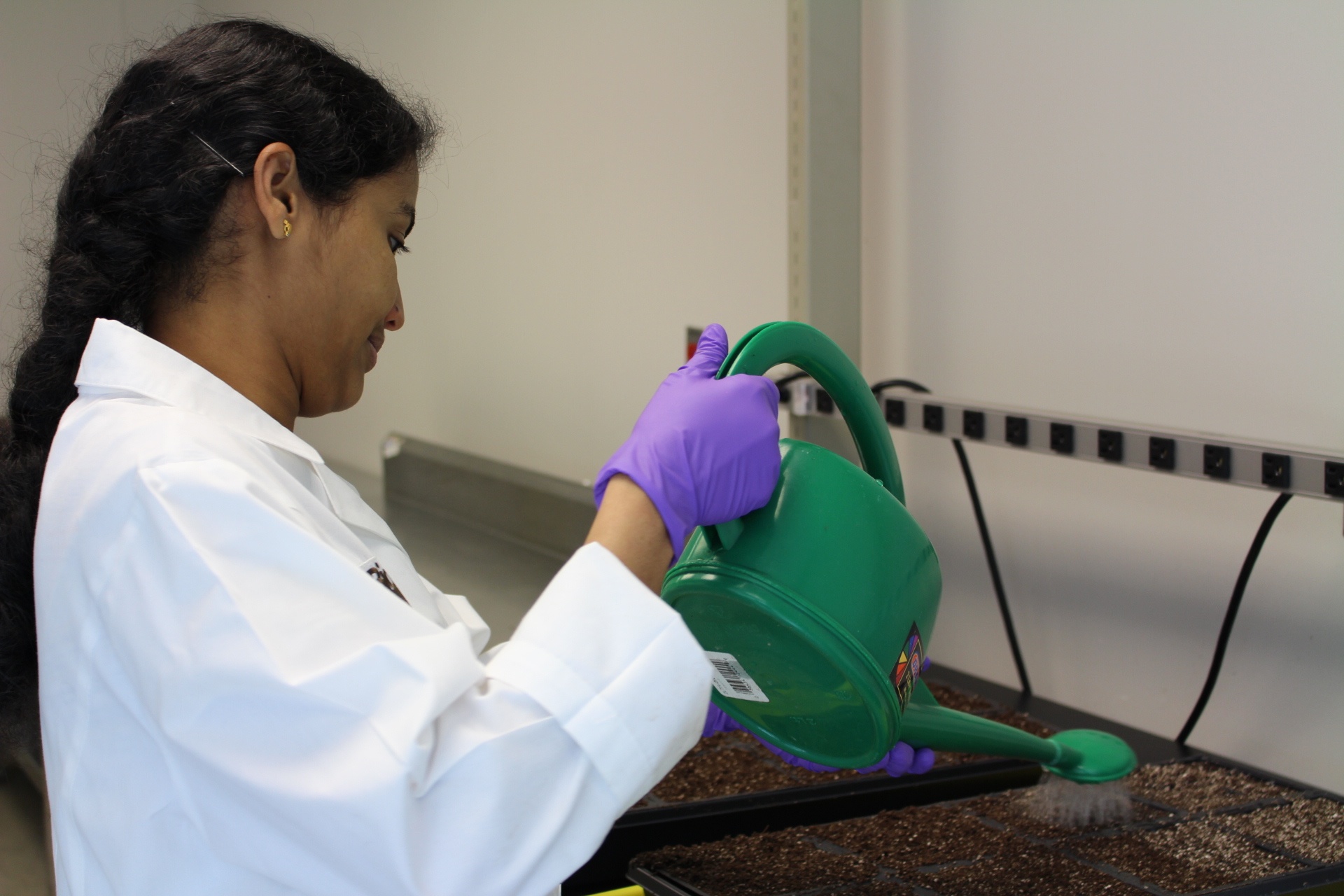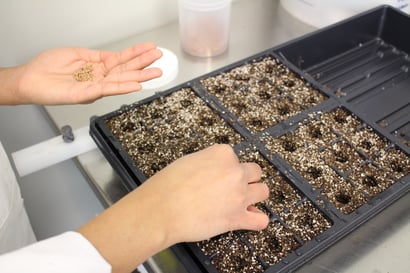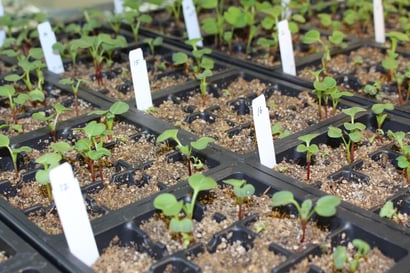Did you know that plants can get sick like humans and animals!? It’s true, and at AgBiome we make products to control insects, weeds, nematodes, and plant pathogens. While a majority of human pathogens are viruses and bacteria, most plant pathogens are fungi. For this reason, that plant pathologists at AgBiome are focused on research and development of product candidates to control economically important fungal pathogens that reside in the soil (soil-borne plant pathogens) and those that are airborne and attack plant foliage (foliar plant pathogens).

Meet Anna! She is a plant pathologist on the soil-borne pathogens team, which focuses on discovery of biologicals that control damping off pathogens including Rhizoctonia, Pythium, and Fusarium, and other important soil-borne fungal pathogens. This team also plays a large role in quality control testing for AgBiome biological products, and works with AgBiome Innovations to find and create screening assays for additional pathosystems of interest.
To execute this part of discovery, the soil-borne team has weekly tasks that include: mixing soil infested with plant pathogens, treating seed with experimental biological controls, planting screening assays for Rhizoctonia and Pythium biological control candidates, assay care and rating for plant health, data entry, analysis of completed experiments, and communication on new findings to the plant pathology functional group. All of these tasks drive them closer to their goal of finding biological control candidates that are as effective as synthetic fungicides and that are compatible with synthetic fungicides on the market.


Three factors required for disease development are a susceptible host (host that is prone to infection), a virulent pathogen (pathogen able to cause disease), and favorable environmental conditions. While these conditions can line up regularly in the field, it can often be difficult to replicate these conditions in a laboratory setting. Anna and the soil-borne team have taken on this challenge by developing laboratory and greenhouse experiments that replicate disease development in the field. Based on results from these small scale screens, product candidates are selected for field testing to confirm activity. As they look to the future, their team hopes to expand their screening pipeline to include more pathogens and help AgBiome grow their available combination products.
Stay tuned for more plant pathology team updates as we take a look at work of the foliar pathogens group!
.png?width=299&name=AgBiome-Logo-color-registered%20(1).png)